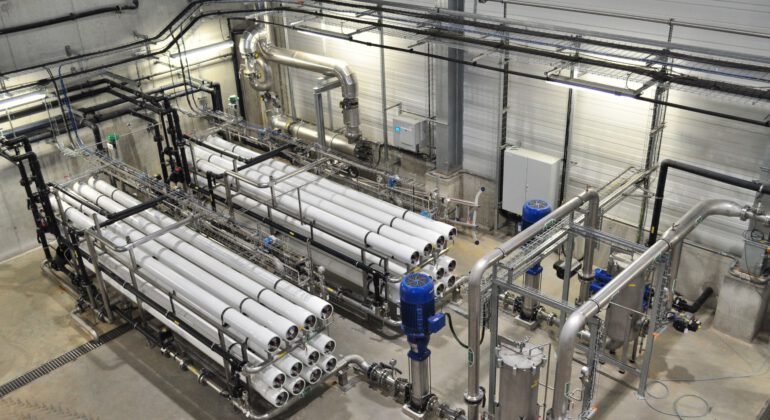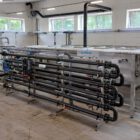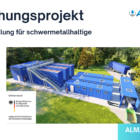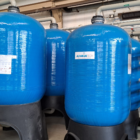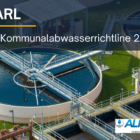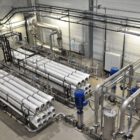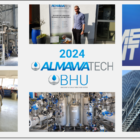This article looks at the importance of new technologies in wastewater treatment and how they can help to improve the efficiency of water treatment. Wastewater treatment plays an important role in ensuring the health and safety of people and the environment. New technologies offer interesting solutions that are both cost-effective and sustainable. In this article, we will give you insights into these technologies and how companies can benefit from these innovative technologies. Read on to find out more!
Table of contents
Why is wastewater treatment important?
Wastewater treatment is an essential part of public health and environmental protection. Untreated wastewater contains many harmful substances that can contaminate groundwater, surface water and soil. This can have a negative impact on human and animal health and pollute the environment.
Through thorough wastewater treatment, we can create a better future for our communities and the environment.
The importance of new technologies in wastewater treatment
Advantages of new technologies
Wastewater treatment is an important process that is often associated with high costs and challenges for companies. However, modern technologies offer numerous advantages and solutions for more efficient and environmentally friendly wastewater treatment. By using membrane filtration, ozonation and microorganisms, companies can not only improve the quality of treated wastewater, but also lower operating costs and reduce environmental impact. New technologies can also help to reduce the need for treatment agents and energy, resulting in more sustainable and cost-effective wastewater treatment.
Some of the latest technologies in wastewater treatment are listed below:
Membrane technology
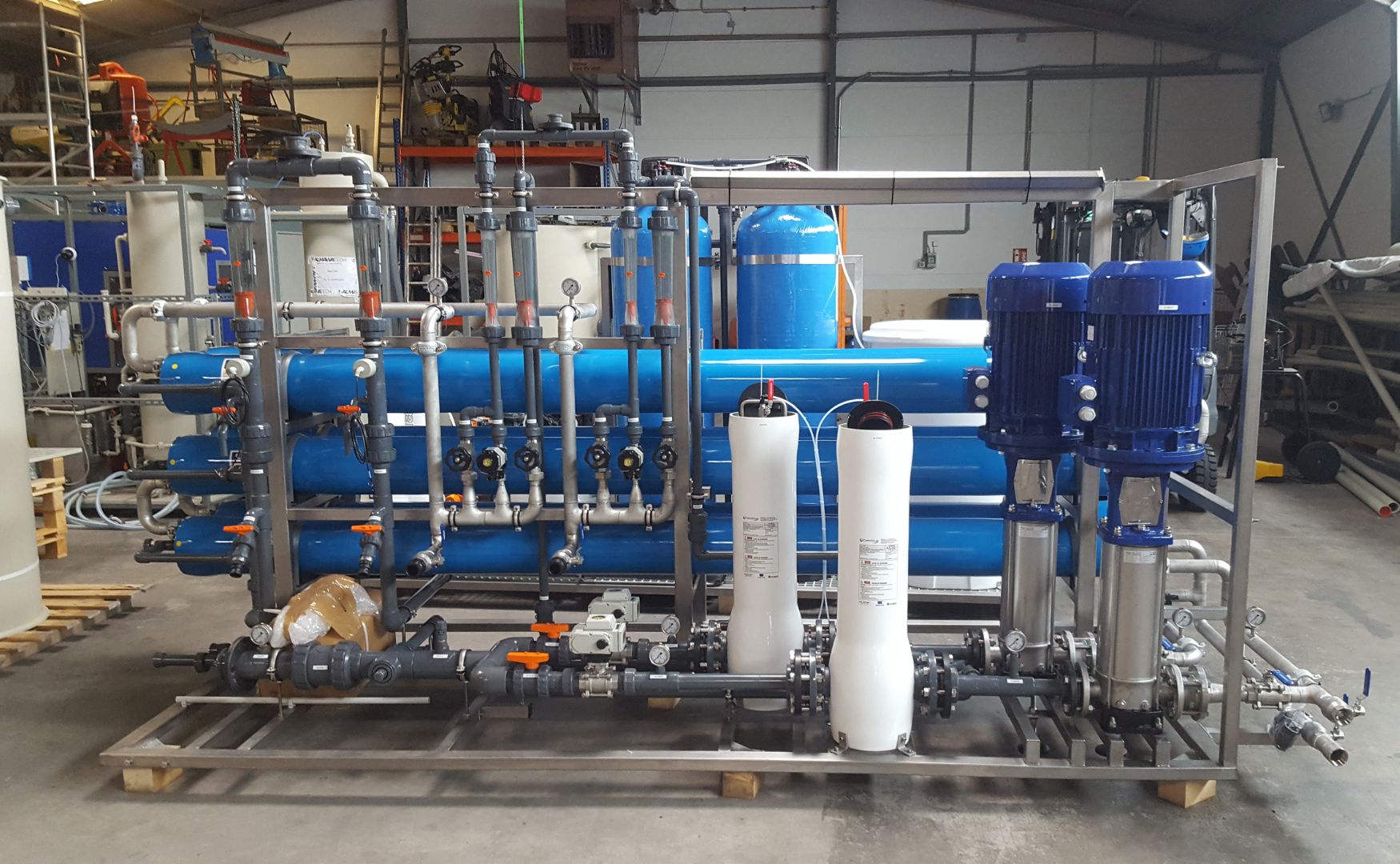
Photo: ALMA OSMO Process (to the product) for the treatment of process water and in-house water recycling
Membrane technology is considered an advanced process for effective wastewater treatment. A membrane is used to remove pollutants and particles from the wastewater.
The outstanding advantages of this technology include not only exceptionally high purification efficiency, but also the possibility of recovering valuable process water from wastewater. Membrane technology, especially reverse osmosis systems, has proven to be particularly effective in the purification of trace substances. The fine membranes can remove trace substances such as PFAS, drug residues, X-ray contrast agents or pesticides.
The potential of reverse osmosis systems extends beyond wastewater treatment, as they also play an important role in water treatment and water recycling. With its ability to efficiently eliminate impurities while recovering valuable water, membrane technology makes a significant contribution to environmental protection and sustainability.
Oxidation
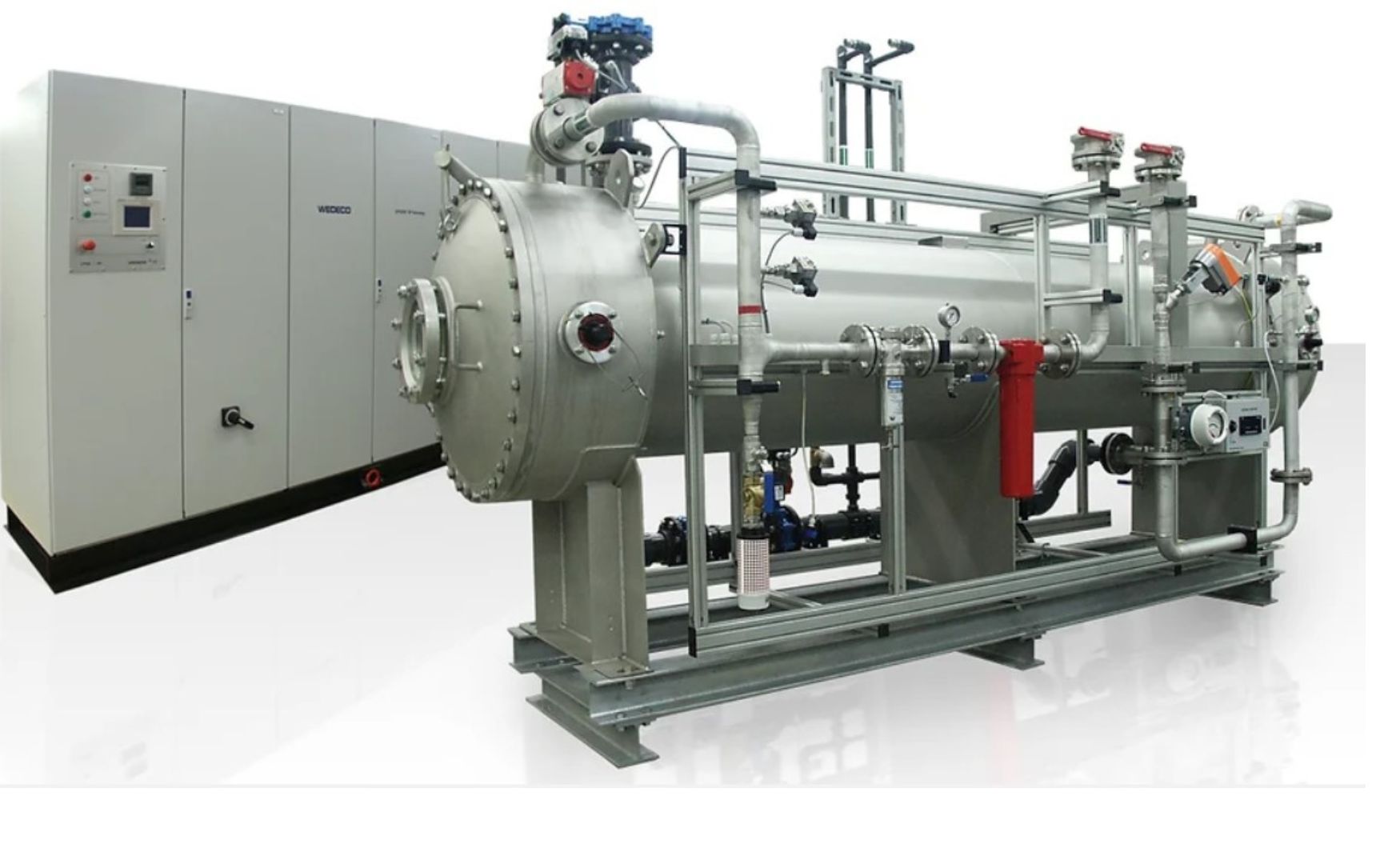
Photo: ALMA BHU OXI (to the product)
Ozonation is a state-of-the-art process that has proven itself in wastewater treatment and water purification. Ozone, a strongly oxidizing substance, is used in this process to destroy and remove various pollutants.
A further development of this oxidation process is the so-called Advanced Oxidation Process, also known as the AOP process. In this process, the oxidizing effect of ozone, chlorine or hydrogen peroxide is enhanced by combining it with UV light or the addition of bivalent iron salts.
By combining the oxidizing agents with UV light or bivalent iron salts, more highly reactive radicals are formed from the oxidizing agent. These highly reactive radicals are also capable of eliminating refractory COD.
The combination of oxidizing agent and a divalent iron salt is known as the Fenton process (see ALMA OXI Fenton). Typical areas of application are the chemical and pharmaceutical industries.
The combination of UV treatment and oxidation is generally used to produce high-purity demineralized water and for in-house water recycling. For more information on this combination process, visit the ALMA OXI UV page.
The advantages of ozonation are manifold. It not only enables the efficient removal of organic compounds, but also of toxic and persistent wastewater constituents. In addition, ozonation contributes to the disinfection of wastewater, killing microorganisms and pathogens. This makes it a particularly suitable technology for the removal of refractory COD and trace substances, as well as the production of ultrapure water and in-house water recycling.
Increasing efficiency through new technologies in wastewater treatment
Reduction of operating costs
Industrial wastewater treatment is an essential part of industrial production and requires significant investment in equipment, technology and personnel. However, there are ways to reduce operating costs without compromising the effectiveness of wastewater treatment.
One way to reduce operating costs is to use waste heat from wastewater by means of heat exchangers. The reuse of waste heat generated during wastewater treatment can lead to significant energy savings. This method is not only environmentally friendly, but also cost-effective.
Another way to save costs is to reduce water consumption. Careful monitoring of water consumption can help to identify and reduce leaks or wastage. The use of automated processes and technologies can also help to optimize water consumption and reduce costs.
Conclusion
Wastewater treatment is an important part of environmental protection. New technologies have led to significant improvements in the effectiveness of treatment plants in recent years. But what developments can we expect in the future?
It is to be expected that future developments in wastewater treatment will aim for lower specific energy requirements and higher purification performance. Innovative technologies such as membrane filtration, ozonation/AOP processes and artificial intelligence will be increasingly used for this purpose.
Another trend is the switch to green and sustainable technologies. The focus here is increasingly on renewable energy sources such as solar energy, wind power and biogas (overview of our biogas plants). New processes are also being developed to use resources such as water and energy more efficiently.
Another forward-looking topic is the development of cycle-oriented concepts and water recycling, which view wastewater purification and water treatment as part of comprehensive resource management. Here, wastewater is not only purified, but also reused and returned to the production cycle.
Overall, it can be said that wastewater treatment will continue to play an important role in environmental protection and sustainability in the future. New technologies and innovative concepts will help to further improve the effectiveness of wastewater treatment and at the same time reduce the environmental impact.
Recommendations for action for manufacturing companies
When it comes to industrial wastewater treatment, there are many challenges that companies need to overcome. Here are some recommendations for companies to make their wastewater treatment processes more efficient and environmentally friendly:
- Invest in new technologies that can help you improve the cleaning process and reduce pollutant levels.
- Check your wastewater treatment systems regularly to ensure that they are working properly.
- Train your staff to ensure that they understand the wastewater treatment processes and operate efficiently. This includes, above all, the professional adjustment of chemical dosing.
- Regularly monitor the pollutant content in your wastewater to ensure that it is within the legal requirements.
- Rely on the experience and knowledge of specialists who can offer you expert advice.
With these recommendations for action, companies can make their wastewater treatment or water treatment more effective and environmentally friendly. If you need further tips or support with implementation, please contact our experienced team.
Contact us to find out how we can optimize your wastewater treatment processes.


